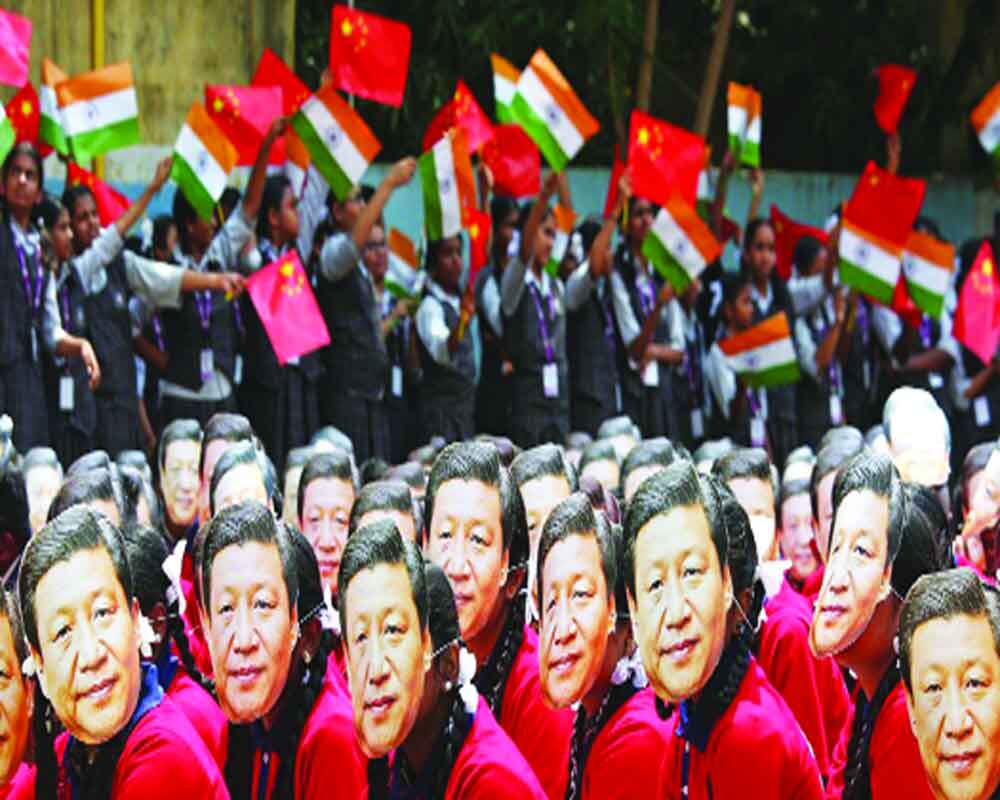India was quick to brush off US mediation on Ladakh. Besides, we can’t afford to rub China the wrong way in the pandemic era
India finds itself in a peculiar situation, caught between the US and China over border tensions in Ladakh. While its strategic proximity to the first is a source of deep discontent for a hegemonic Asian power, the maverick support from US President Donald Trump, who offered to mediate in the crisis, has meant double trouble. Trump has made many mediation efforts on India’s behalf at international fora before but the timing of this one in a post-pandemic world is different. More than India, it is a message to China. The US, which has made no bones about China fudging the scale and potency of the Wuhan contagion and is in a punishing mood, threatening to boycott it economically, is building an international coalition of opinion against the Middle Kingdom. It is, therefore, drawing India to be a part of this anti-China narrative, knowing full well that we could end up being among the top worst-hit nations and would have much to be suspicious about our eastern neighbour. In that sense, the US is feeding off India’s weakened position, courtesy its plunging economy and a soaring public health crisis, as much as China is. The heightened tension at Ladakh is China’s way of reminding India that it could light up the Himalayan border easily if we fell into the US trap of building a global campaign against it or block trade and investment here. In fact, given that we cannot end our import dependence on China overnight considering its manufacturing edge over ours, particularly when the pandemic has paralysed our economy, we just have to engage with China one on one. India, therefore, has rightly distanced itself, maintaining that it would solve issues with its neighbours through dialogue and diplomatic mechanisms rather than external intervention. China, too, which is used to speaking in a forked tongue, has already indicated diplomacy as a way around the impasse. India is well familiar with this blow-hot-blow-cold intimidatory tactic though the escalation this time is in sync with Chinese depredations in the region against neighbours. Clearly, Xi Jinping wants to justify the need for his muscular leadership by positing the world as an enemy out to finish China as he faces a fall in GDP, about 25 per cent unemployment, a plunging economy and the suppressed rage of a people, who will never know the damage the virus has done to them.
So what should India do? As Doklam has taught us, standing down is not always the way. Indian troops are now favourably placed in many positions and border infrastructure has been fairly ramped up over the last decade. Improved road corridors mean that we can now service requirements and replenish supplies even better. This is what has been exasperating the People’s Liberation Army (PLA), which realises that its edge in the region is gradually being blunted and thinks that India might have ambitions in the Aksai Chin. So India should remain firm on legitimate positions. At the same time, it must step up diplomacy and keep at it rather than diverting itself to scaled up military conflicts as China is still a powerful neighbour. In fact, diplomacy, though requiring high-level intervention, may just work as the tussle this time is over areas that are not really disputed since 1962 and quite distant from the Line of Actual Control (LAC). Of course, this doesn’t mean that China won’t attempt transgressions and territorial intimidation to armtwist us during crises. At the same time, if China rakes up the long Himalayan boundaries, we should pose a counter-weight by tying up with Southeast Asian nations and build pressure against Chinese expansionism in the South China Sea. We should discuss shared threats in the Indian Ocean region with Vietnam, Philippines, Australia, Indonesia and Malaysia. Diplomatically, we could circle China by galvanising the threat perception from it in the region and strengthening a security alliance. One can do this with increased diplomatic engagement without appearing too aggressive and risking a Chinese hitback. In fact, we must be prepared for more hostilities as India builds self-sufficiencies. India has stalled it from ambushing our economy by amending its foreign direct investment (FDI) rules to mandate Government approval for all investments from “border” countries and prevent hostile takeovers. We have already cancelled orders for Chinese test kits as they were faulty and have switched to South Korea and other nations. We are supporting a global impartial probe into the Wuhan contagion and though “vocal for local” may not have any scale now, China will not sit easy with the discomfort over 5G trials and a future shrinkage of its market in India.


























